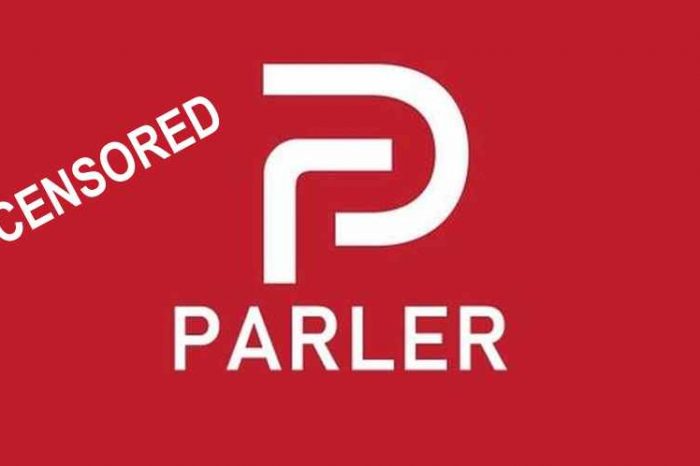The Best Alternatives to Big Tech

Since its inception in the late 90s, the internet has been known for free and rapid dissemination of uncensored information. But in recent years, Big Tech companies like Facebook, Twitter, Google have been censoring content, which is a violation of their First Amendment rights. The ongoing Big Tech censorship is a watershed moment in the history of this country.
From abuse of their monopoly power to shutting down free speech on social media platforms, it is becoming increasingly apparent that Big Tech poses the single greatest threat to our free speech and our ways of life. When Google first started, its motto back then used to be “Don’t be evil.” In recent years, however, these Big Tech companies are now openly quashing dissent and removing people from their platforms.
Just this week, more than 200 Google employees come together to form a union known as the Alphabet Workers Union. In a New York Times op-ed by two employees, Parul Koul and Chewy Shaw, titled, “We Built Google. This Is Not the Company We Want to Work For,” the duo reminded Google of its motto saying “our company’s motto used to be “Don’t be evil.”
Now, Americans are beginning to wake up and say no to online censorship. Since Big Tech companies are still protected under Section 230 of the Communications Decency Act of 1996, suing the Big Tech companies is completely out of the question. Section 230 is part of a broader telecom law that provides a legal “safe harbor” to protect internet companies from being sued for libel. To make matter worse, the politicians in Washington may likely not take any action in the foreseeable future to regulate Big Tech and break their monopoly power. So, something else has to be done
Starving The Beast
Today, a vast majority of Americans cannot stand up to the 800-pound gorilla like Google, Facebook, Twitter, and others. They can’t build Big Tech alternatives. However, we certainly can support those who do. For example, we can invest in new and up-and-coming companies, entrepreneurs, institutions, and free-thinking technology companies that are creating new ways to compete with these behemoths.
Today, tech startups face an uphill battle in competing against the Googles of the world who have the resources, money, and power to dominate their markets. But we can certainly make our voices heard by voting with our wallets and buying products and services from competitors of these Big Tech companies. Since we can’t do without some of the products and services provide by these Big Tech companies, we want to provide you with great alternatives to Big Tech companies like Facebook, Google, Twitter, and Instagram. Our goal is to update this post as more information becomes available. Please feel free to send us any product or services you would like us to add to this list.
For now, here are some of the best Big Tech alternatives. This list is by no means exhaustive. We plan to expand the list as we discover new ones.
Alternatives to Big Tech
Best Alternatives to Google
According to various stats, Google currently controls 90% of the Internet search. How would you feel if you found out that access to your web activity and data is sold to the highest bidder? Big Tech giants grow rich, while publishers go out of business. And the entire system is rife with ad fraud. However, there are a lot of great search engines from companies that respect your privacy. The number one on the list is:
DuckDuckGo: DuckDuckGo is an internet search engine that emphasizes protecting searchers’ privacy and avoiding the filter bubble of personalized search results. Unlike Google and other Big Tech search engines, DuckDuckGo distinguishes itself by not profiling its users and by showing all users the same search results for a given search term. DuckDuckGo has even called google out for anti-competitive behavior and slandering their name. Just a few years ago, DuckDuckGo was able to buy Duck.com from Google.
Brave: This is probably the best web browser you’ve probably never heard of. Unlike Chrome and Microsft Edge, Brave stops online surveillance, loads content faster, and uses 35% less battery. In addition, Brave browser is three times faster than Chrome. Brave is a free and open-source web browser developed by Brave Software, Inc. based on the Chromium web browser. It blocks ads and website trackers, and provides a way for users to send cryptocurrency contributions in the form of Basic Attention Tokens to websites and content creators.
Dissenter: The Dissenter is a free speech web browser. Unlike the Big Tech browsers that track everything you do online, Dissenter dubbed itself as a browser “built for The People, not advertisers.” Dissenter block big tech ads and trackers by default.
Ekoru: Ekoru.org is a new search engine that aims to help save our oceans by addressing two key problems, plastic pollution, and CO2 levels. The promise is simple. 60% of the revenue goes to partners involved with ocean cleanup and ocean reforestation. That’s right, you read correctly. Reforestation. The search engine for the oceans was started by Australian expatriate Ati Bakush and Alison Lee a husband and wife team living in Malaysia. We wrote about Ekoru in January of last year.
Best Alternatives to Facebook
Facebook is the number two most visited website worldwide after Google. Every day, 1.62 billion users visit Facebook with 88% of Facebook people using the platform to stay in contact with friends and family. In 2018, Facebook was accused of sharing user’s personal data and violating users’ privacy. It was also reported that Facebook allowed Cambridge Analytica, a data analytics company, to access Facebook users’ data. In recent months, however, Facebook shut down its users’ accounts for violating its companies policy.
MeWe: Founded nine years ago, MeWe is the rapidly growing high integrity alternative to Facebook. Unlike Facebook which tracks your data, MeWe is a next-gen social network with no ads, no targeting, and no newsfeed manipulation. In recent months, MeWe, along with Parler, has benefitted from conservatives’ frustration with how they were treated on Facebook and Twitter. Like Facebook, MeWe platform allows its users to post text and images on their timelines, share other member’s content, send disappearing messages, and also join and create groups.
Other Facebook alternatives include:
- Minds: Minds dubbed itself as a place to “free your mind and get paid for creating content, driving traffic, and referring friends. A place to have open conversations and bring people together.”
- Vero: Similar to Facebook, Vero is an Ad-free & Algorithm-free social media platform
- NextDoor: Unlike other traditional social platforms, NextDoor is where communities come together to greet newcomers, exchange recommendations, and read the latest local news. Where neighbors support local businesses and get updates from public agencies.
Best Alternatives to Twitter
As we all know, Twitter controls the lion’s share of the microbloging space and social networking space. As of May 2020, there are over 330 million monthly active users and 186 million daily active users on Twitter, according to stats from its second-quarter report. In recent years, Twitter has been suppressing free speech and banning people with opposing views from its platform. However, there are other microblogging alternatives from up-and-coming startups. Number one in this category is Parler.
Gab.com: Gab is one of the best alternative social apps to Twitter for those who want to fight Big Tech censorship and social media freedom. Gab.com is a social media website founded on the premise of promoting free speech. Gab dubbed itself as a platform to promote free speech and individual liberty. Since the recent ban of Parler by Apple, Twitter, and Google, Gab says it’s gaining 10,000 new users every hour. Just like Twitter, Gab has a great user interface and probably a better user experience than Twitter.
Parler: Gab is another microblogging social platform to cater to people who love freedom. Parler is another Twitter-like social media microblogging platform that dubbed itself as a non-biased free speech-driven entity. Parler (from the French word for “to speak”) was founded by CEO John Matze in 2018. The social platform is regarded as one of the best alternatives to Twitter. It marketed as an unbiased, free-speech social media platform focused on protecting users’ rights.
Best Alternatives to YouTube
In the United States, YouTube dominates the video-sharing market. Owned by Google, YouTube is the second most popular social media platform after Facebook. YouTube is a video-sharing service allowing users to upload, view, rate, share, add to favorites, report, and comment on videos. In 2020, 79 percent of internet users said they have a YouTube account. According to Statista, YouTube controls 93.4 percent of the U.S. video market. However, with all its success, YouTube continues to censor content on its platform. In May 2020, YouTube censored German epidemiologist Knut Wittkowski for opposing the lockdown and going against WHO recommendations. So, are there better alternatives to YouTube? It depends. For now, the best alternative to YouTube in the US is Rumble.
Rumble: Similar to YouTube, Rumble is a fast-growing video platform that lets users upload their videos and create their own channels. In recent months, Rumble has seen an increasing number of conservatives leaving YouTube for its platform.
Brighteon.com: Similar to YouTube, Brighteon is a video-sharing platform founded by Mike Adams, the creator of Natural News. Adams started Brighteon as a free-speech alternative video-hosting site after he was repeatedly censored on YouTube and other social media. In June 2019, Facebook banned Natural News from posting on its social media platform after Adams accused Big Tech of representing “the greatest threat to human freedom the world has ever seen.”
Best Alternatives to Gmail
“If you are not paying for it, then you’re the product being sold,” is a popular saying for most free products and services offered by not just the Big Tech but also by companies that offer free products. Google is not an exception. Google offers a free email service known as Gmail. However, the bad news is that Gmail, Google, and its third-party partners all read this information. But how would you feel if someone read every piece of your email? Google knows everything you do. Google reads every sentence as you compose your email and provides recommendations on changes to make even reminds you if you forget to include an attachment. To take back your privacy, here some of the best alternatives to Google Gmail.
ProtonMail: ProtonMail is the best open-source alternative email service to Gmail. ProtonMail is also the world’s largest secure email service, developed by CERN and MIT scientists, and protected by Swiss privacy law.
Other Gmail alternatives include:
- Tutanota: Tutanota is an end-to-end encrypted mail service that encrypts the entire mailbox. Founded in 2011, the Germany-based startup’s motto is “einfach.sicher.mailen” in German, meaning “easy.secure.mailing”. With its open-source technology Tutanota fights for privacy and freedom of speech online. Started as a secure email service, Tutanota now offers an encrypted address book, the encrypted contact form Secure Connect and an encrypted calendar. Its business model excludes earning money through advertisement. Instead, it relies solely on donations and Premium subscriptions. As of March 2017, Tutanota’s owners claimed to have over 2 million users of the product.
- Posteo
- StartMail
- Runbox.
- Mailfence
- CounterMail
- Mailbox.org
Clearly, this list is not exhaustive. And in the future we will be talking about more alternatives, and doing a deeper dive on their privacy and accountability. The point is you don’t have to allow these tech giants to have power over you.

